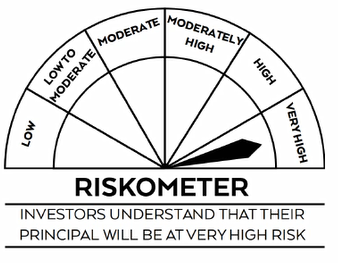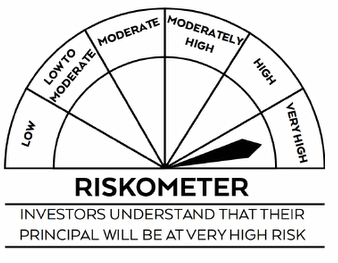Small Wonders: The Big Deal with Small Caps?
Have you ever found yourself mesmerised by the dynamic world of small cap funds, wondering if they're the right investment choice for you? Well, you're not alone.
With the recent surge in the popularity of small cap funds, it's crucial to understand the nuances of this investment category. In a recent enlightening episode of the "One Step Ahead" show by DSP Mutual Fund, Sahil Kapoor, Head of Products and Market Strategist at DSP Asset Managers, shed light on the intricacies of small cap investments.
Understanding small cap stocks
Small cap stocks, as defined by regulatory standards, are those companies that rank beyond the top 250 in terms of full market capitalization. These include companies from the 251st position and beyond. Many people often perceive small cap stocks as potential multi baggers, and are attracted due to their potential to deliver good returns with relatively lower market capitalizations. However, it's essential to note that lower share prices don't necessarily equate to better valuations.
The current market scenario
In the dynamic world of small cap investing, understanding the current market scenario is crucial for making informed decisions. As we delve into the present state of small cap stocks, a few key factors stand out, shaping the investment landscape.
1. Elevated valuations: A double-edged sword
Currently, small cap stocks are experiencing higher-than-average valuations1. This trend is a double-edged sword. On one hand, it reflects the market's confidence in the growth potential of these companies. On the other, it raises concerns about sustainability and the risk of overvaluation. Investors need to be wary of the fact that high valuations can lead to increased volatility and potential downturns if the market sentiment shifts.
2. The aftermath of the pandemic
The COVID-19 pandemic has been a catalyst for significant changes in market dynamics. Small cap stocks, experienced a rollercoaster ride during this period2. Initially hit hard by the economic downturn, many small cap companies have bounced back strongly, aided by innovative business models and adaptability. However, the pandemic's long-term economic impacts are still unfolding, making it essential for investors to stay vigilant.
3. Sectoral shifts and opportunities
The current market scenario also presents a shift in sectoral opportunities within the small cap space. Industries such as technology, healthcare, and renewable energy are gaining prominence, driven by global trends and policy shifts. Investors can look for companies in these emerging sectors that exhibit strong fundamentals and growth prospects.
4. The influence of global markets
Global economic trends and geopolitical events continue to influence the Indian market, including small cap stocks. Fluctuations in global markets, changes in trade policies, and international political events can have ripple effects, impacting investor sentiment and market performance. Keeping an eye on these global cues is essential for understanding the broader context in which small cap stocks operate.
5. The role of domestic policies
Domestic economic policies and reforms play a significant role in shaping the investment environment for small cap stocks. Government initiatives, regulatory changes, and economic reforms can either boost or hinder the growth prospects of these companies. Investors need to be aware of the current policy landscape and its implications for small cap investments.
Is there a right approach to small cap investing?
Investor expectations and strategy
We request investors to temper their expectations and adopt a conservative approach, especially in the current market scenario. It's advisable to focus on SIPs rather than lump-sum investments and to be mindful of the overall allocation to small caps in one's portfolio. Quality, balance sheet strength, earnings growth, and valuations are key factors to consider when investing in small cap funds.
Navigating geopolitical tensions
Current geopolitical tensions, especially those impacting crude oil prices3, can have significant repercussions on markets worldwide, including India. Investors should remain vigilant and consider these factors while making their investment decisions.
Final thoughts
While small cap funds offer good opportunities, they come with their own set of challenges and risks. It's crucial to understand these before diving in. Remember, investing in small caps is not just about finding the next big thing; it's about prudent, informed decision-making.
Need more guidance?
If you're still pondering whether small cap funds are the right fit for your investment portfolio, we're here to help. Click here to leave your information with us, and our experts will reach out to you with personalized advice and insights or we will ask you to connect with your Mutual Fund Distributors (MFDs); they are not just advisors but partners in your financial journey. Their expertise coupled with the insights in this video can help you to navigate the small cap surge with confidence and prudence. Let us help you navigate the complex world of small cap investing with DSP Small Cap Fund. And, even at the cost of repeating ourselves, *invest via SIPs only*!
1Data Source: NSE. Nifty Small cap 250 TRI & Nifty 50 TRI considered for Small cap & Large caps. Data from 01 Apr 2005 till 30 Sep 2023.
2Data Source: NSE. Nifty Small Cap 250 TRI considered for Small Cap. Data from 28 Mar 2023 till 30 Sep 2023).
3Data Source: financial markets: How will the Israel-Palestine war impact financial markets? Is there any historical reference to this? - The Economic Times (indiatimes.com)
|
DSP Small Cap Fund |
|
| Small Cap Fund- An open-ended equity scheme predominantly investing in small cap stock | |
|
Product Suitability |
|
|
This open-ended equity scheme is suitable for investors who are seeking*
*Investors should consult their financial advisers if in doubt about whether the Scheme is suitable for them. |
|
|
SCHEME RISKOMETER |
BENCHMARK RISKOMETER |
|
|
|
Disclaimer
Large-caps are defined as top 100 stocks on market capitalization, mid-caps as 101-250, small-caps as 251 and above. Data provided is as on October 31st, 2023 (unless otherwise specified). It is not possible to invest directly in an index. For complete details on investment objective, investment strategy, asset allocation, scheme specific risk factors and more details, please read the Scheme Information Document, Statement of Additional Information and Key Information Memorandum of the scheme available on ISC of AMC and also available on www.dspim.com. The note indicates the strategy/investment approach currently followed by this Scheme and the same may change in future depending on market conditions and other factors. Investors are advised to consult their own legal, tax and financial advisors to determine possible tax, legal and other financial implication or consequence of subscribing to the units of the schemes of the DSP Mutual Fund. The statements contained herein may include statements of future expectations and other forward looking statements that are based on prevailing market conditions / various other factors and involve known and unknown risks and uncertainties that could cause actual results, performance or events to differ materially from those expressed or implied in such statements. The recipient(s) before acting on any information herein should make his/their own investigation and seek appropriate professional advice
Mutual Fund investments are subject to market risks, read all scheme related documents carefully.
.jpg)

-1-1%20(1).webp?width=355&height=268&name=dsp02%20(1)-1-1%20(1).webp)








Leave a comment